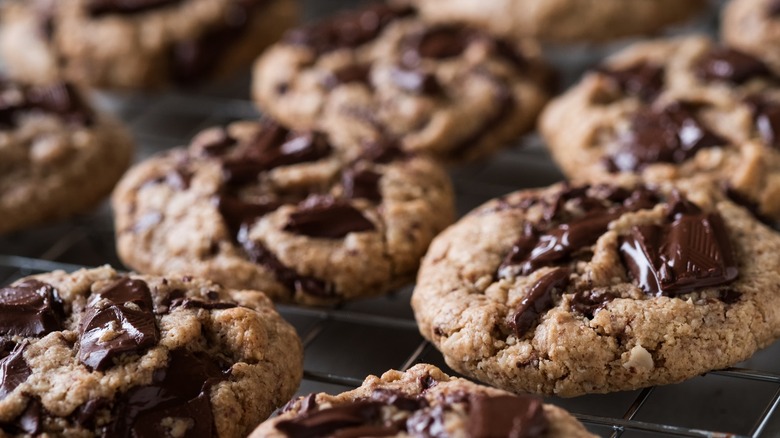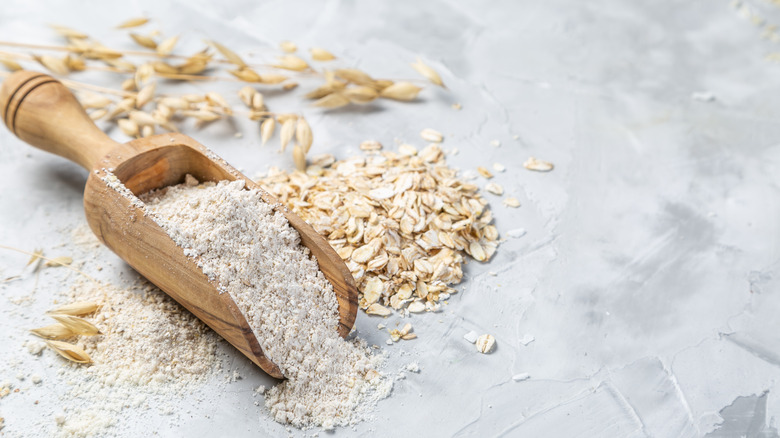Oat Flour Is The Secret Ingredient You Should Be Adding To Chocolate Chip Cookies
While the story behind the Neiman Marcus $250 cookie recipe is just a myth that had been passed down in other forms throughout the years, the cookie ingredients that circulated are very real. Unlike the recipe Neiman Marcus released in an attempt to refute the story, the $250 cookie contains oat flour, and the result is a chocolate chip cookie that is soft and chewy, while also crumbly on the outside.
Oat flour is one of those unique ingredients that you have in the pantry, even if you don't realize it. Unlike flours like wheat or coconut, which undergo a few more steps before they become flour, you can make your own oat flour by dumping that container of oats you use for oatmeal into a food processor or blender. Now that you know how accessible oat flour is, you can start using it to make your own cookies even more irresistible.
Adding oats to your chocolate chip cookies will also boost their nutritional and health benefits. According to Healthline, one cup provides about 13 grams of protein and is a good source of vitamins and minerals and beta-glucan, a type of fiber that can help with a healthy gut and reduce cholesterol.
Oat flour is the key to moist, chewy baked goods
Old-fashioned or rolled oats are the most common for baking, but any kind can be used to make oat flour. The measurements change depending on which you use. While 1 cup of old-fashioned or quick-cooking oats equals 1 cup of oat flour, and 1 cup of steel-cut oats (which are less processed) actually measure out to be 2 cups of oat flour.
While oat flour is a great addition to your chocolate chip cookies, it can also be used in recipes for breads, muffins, cakes, and other kinds of cookies. Oatmeal raisin cookies are a favorite for adults and children alike, and oat flour just adds to their chewiness. Oat flour also helps lighten baked goods and keep them moist.
If you want to add oat flour to your baked goods and aren't sure where to begin, Food & Wine's Chef Paola Velez recommends to "start with a tablespoon. Sub it out for the all-purpose flour, and keep adding until the recipe is something that you enjoy and you can call your own."
Oats are often considered to be gluten-free, but due to the possibility of cross-contamination, you should look for certified gluten-free oats if you're cooking for someone with Celiac disease. According to Beyond Celiac, there are also some with Celiac disease that have similar problems with oats due to the protein avenin, so it's always best to ask.

